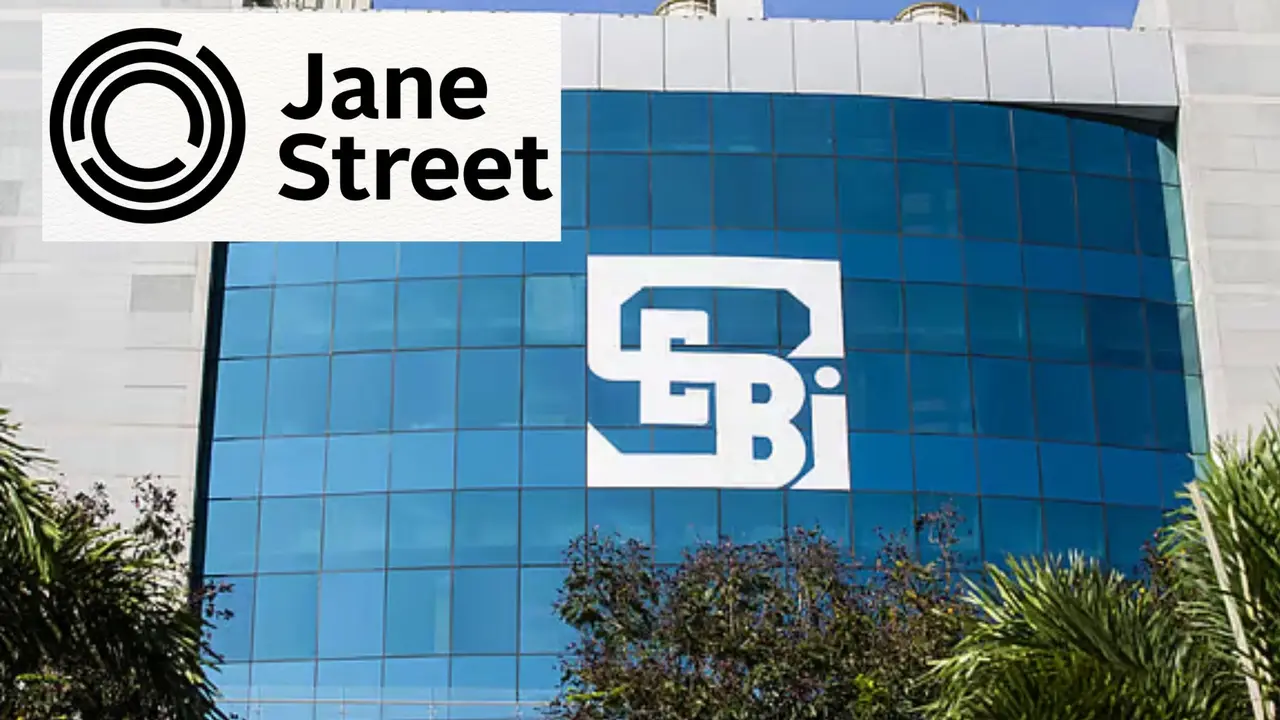Updated 4 July 2025 at 15:53 IST
SEBI Bans JS Group Over Market Regulation Concerns - Which Nifty 50, Nifty Bank Stocks Were Targeted?
Security Exchange Board of India (SEBI) has barred Jane Street Group entities from India's stock market bourses. Here's why.
- Republic Business
- 3 min read

Securities and commodities market regulator Security Exchange Board of India (SEBI) has barred Jane Street Group entities from India's stock market indices Sensex and Nifty, while also ordering a freeze on Rs 4,840 crore in alleged unlawful gains.
In its 105-page interim order, SEBI reported a very sophisticated, expiry day- based strategy in place by the US-headquartered trading entity.
The order basis a 15-month-long regulatory scrutiny over its trading activity revealed that Jane Street Group manipulated index levels via aggressive buying and selling of key Bank Nifty and Nifty 50 constituent stocks, which influenced options pricing to generate substantial profits.
Amid rising concerns over aggressive expiry-day trading in index options, Sebi issued a circular on October 1, 2024, announcing policy steps to curb overtrading on expiry days.
Advertisement
On February 4, 2025, SEBI’s internal team found prima facie evidence of a violation of its PFUTP (Prohibition of Fraudulent and Unfair Trade Practices) regulations by Jane Street.
"In disregard of the caution letter from the Exchange issued, and JS Group’s own commitments to the exchange, Jane Street Group was observed to continue to run very large ‘cash-equivalent’ positions in index options," as per SEBI's interim order.
Advertisement
SEBI fund out in 18 trading sessions, 15 involving Bank Nifty and three involving Nifty 50, the group allegedly engaged in “sharp, large, and aggressive interventions” across the cash and derivatives segments.
These actions, SEBI said, distorted market prices and undermined market integrity.
Bank Nifty Stocks Under Target
Jane Street’s alleged manipulation primarily involved aggressive morning purchases of Bank Nifty constituents — including HDFC Bank, ICICI Bank, Axis Bank, State Bank of India, Kotak Mahindra Bank, IndusInd Bank, Federal Bank, Bank of Baroda, IDFC First Bank, AU Small Finance Bank, Punjab National Bank (PNB), Canara Bank and Bandhan Bank — followed by large-scale afternoon sell-offs.
On January 17, 2024, Jane Street reportedly executed trades worth Rs 4,370 crore in these stocks and booked a net options profit of Rs 673 crore.
Nifty 50 Stocks Affected By JS Group's Manipulation
SEBI further uncovered similar patterns involving Nifty 50 constituents, especially during expiry days in May 2025. Stocks allegedly used to influence index levels included Reliance Industries, Infosys, HDFC Bank, ICICI Bank, Tata Consultancy Services (TCS), HDFC Life Insurance Company, Axis Bank, ITC, Larsen & Toubro, and Kotak Mahindra Bank.
Additionally, the firm executed trades in a broad range of Nifty 50 stocks including Adani Enterprises, Adani Ports, Apollo Hospitals, Asian Paints, Bajaj Auto, Bajaj Finance, Bajaj Finserv, BEL, Bharti Airtel, Cipla, Coal India, Dr. Reddy’s, Eicher Motors, Grasim, HCL Technologies, Hero MotoCorp, Hindalco, HUL, Jio Financial Services, JSW Steel, M&M, Maruti Suzuki, Nestlé India, NTPC, ONGC, Power Grid, SBI Life, Shriram Finance, Sun Pharma, Tata Consumer, Tata Motors, and Tata Steel.
SEBI's Regulatory Action
SEBI concluded that Jane Street’s trading activities misled thousands of retail derivatives traders and violated the Prohibition of Fraudulent and Unfair Trade Practices (PFUTP) regulations.
Disclaimer
The views expressed in this article are purely informational and Republic Media Network does not vouch for, promote or endorse any opinions stated by any third party. Stock market and Mutual Fund investments are subject to market risks and readers are advised to seek expert advice before investing in stocks, derivatives and Mutual Funds
Published By : Nitin Waghela
Published On: 4 July 2025 at 15:53 IST
